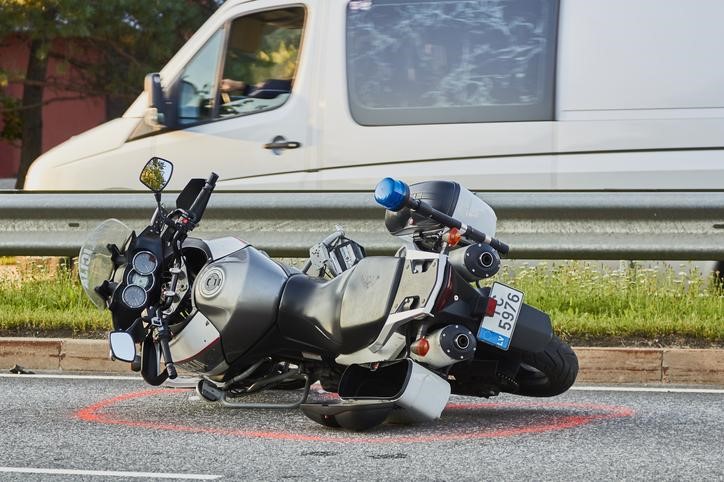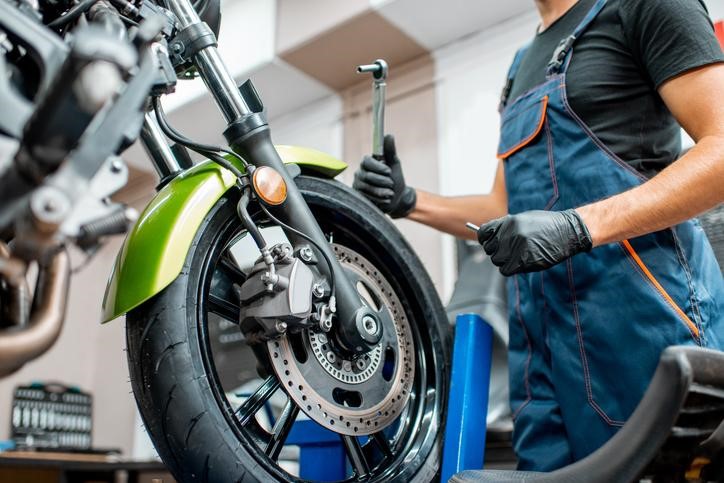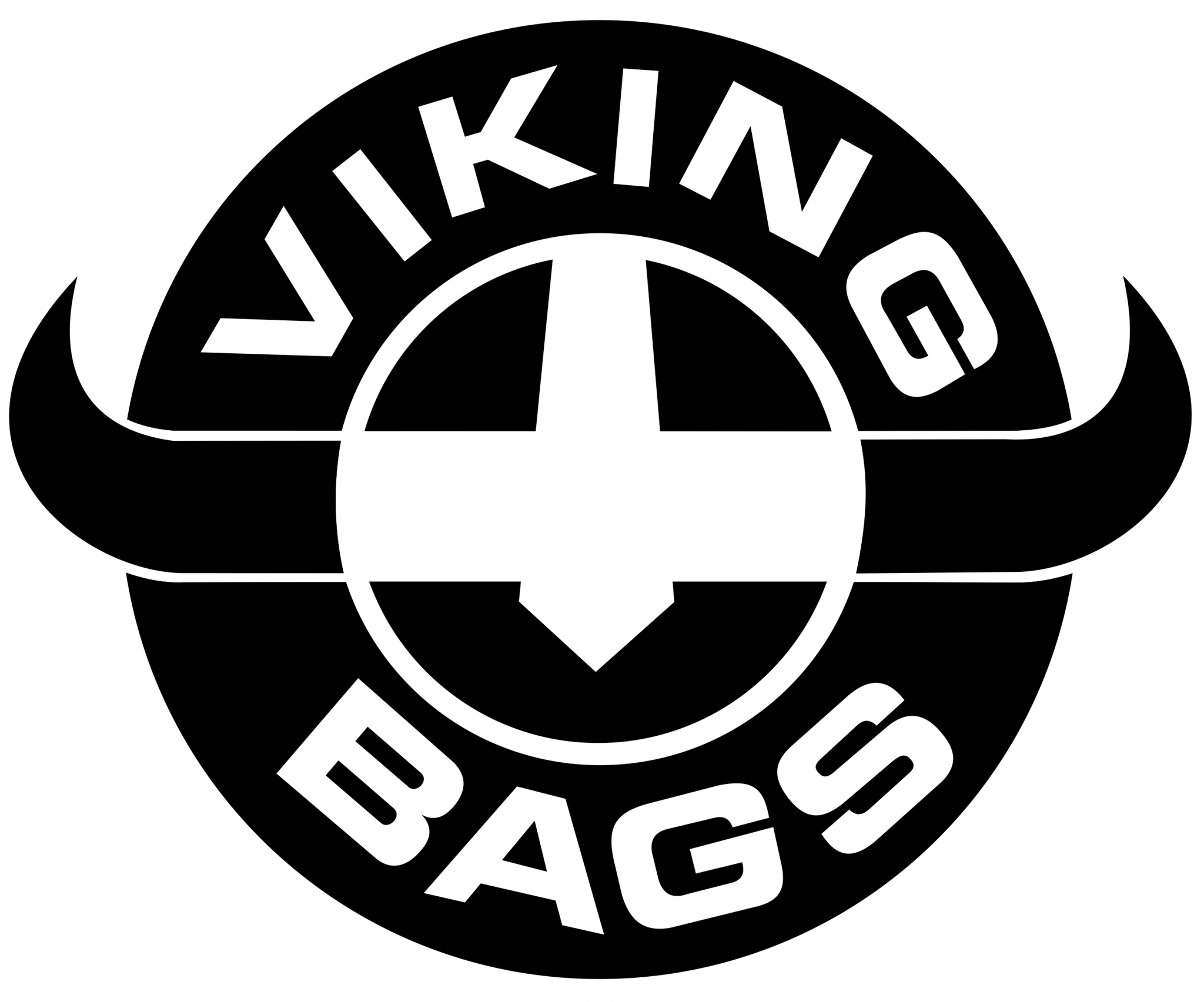Table of Content
1. Introduction
If you consider yourself an experienced rider, you likely have a good understanding of how to operate a motorcycle, plus the general rules for how to safely navigate the road. If you are a novice motorcyclist, you may still need some guidance on how to handle a motorcycle properly along with your other responsibilities. But depending on where in the United States you decide to take your ride, the motorcycle laws may differ or have changed enough to warrant further research.
For those living in Vermont or those who frequently commute there, you would benefit from getting acquainted with this summary of Vermont’s rules of the road and how to get a Vermont motorcycle license.
2. North Carolina Motorcycle Insurance

It is not recommended you ride a motorcycle through North Carolina without motorcycle insurance since doing so is illegal. Besides, having motorcycle insurance is beneficial since it will help pay for injuries and property damages rather than all of it coming out of your pocket. For starters, your North Carolina motorcycle insurance must at least include the following:
$30,000 for bodily injury to a person per accident
$60,000 for bodily injuries to multiple people per accident
$25,000 for property damages sustained per accident
If you get into a severe accident, you may have to pay out of pocket anyway for the costs that are not covered by your insurance. That being said, there are additional forms of insurance that deal with drivers who have no insurance or vehicle damage suffered outside of a collision:
Uninsured coverage
Underinsured coverage
Collision coverage
Comprehensive coverage
Medical payments coverage
3. North Carolina Motorcycle Helmet Laws

North Carolina needs both operators and passengers alike of any age to have a correctly-sized motorcycle helmet for the length of a trip.
Thanks to the universal motorcycle helmet policy being heavily enforced in North Carolina, this state has seen a low number of motorcycle-related fatalities in recent years:
In 2010, there were 3,782 motorcycle-related accidents, but there were only 172 fatal motorcycle accidents
In 2012, there were 4,269 motorcycle-related accidents, but there were only 161 fatal motorcycle accidents
In 2014, there were estimated to be more than 4,000 motorcycle-related accidents, but there were only 150 fatal motorcycle accidents
North Carolina mainly approves of either three-quarter or full-face helmets since they are made with quality materials by the Snell Memorial Foundation and are built according to the U.S. Department of Transportation’s specifications.
| Requirements | Three-Quarter Helmet | Full-Face Helmet |
|---|---|---|
| Has the Department of Transportation (DOT) sticker | ✔️ | ✔️ |
| Contours around your head to fit snugly due to comfort padding | ✔️ | ✔️ |
| No signs of damage (Ex:// cracks, loose padding, scratches, or frayed straps) | ✔️ | ✔️ |
| Has a face shield with no scratches | ❌ | ✔️ |
| Includes separate eye protection with no scratches (Ex:// goggles, glasses) | ✔️ | ❌ |
| Has a hard and durable outer shell that is shatter-resistant | ✔️ | ✔️ |
| Has a thick impact absorbing inner liner | ✔️ | ✔️ |
| Gives you a clear, peripheral view of your surroundings | ✔️ | ✔️ |
| Securely fastened with neck- or chin-strap | ✔️ | ✔️ |
| Allows airflow without fogging up | ✔️ | ✔️ |
| Can allow you to wear sunglasses underneath | ✔️ | ✔️ |
4. North Carolina Motorcycle License Laws
4.1 North Carolina Motorcycle Learner’s Permit
A North Carolina motorcycle learner’s permit allows you to practice for a full year before you need to get a new one. It is possible to get one so long as you are at least 16 years of age and can pay $21.50.
To be given your permit, you must fulfill all of the listed criteria:
-
Applicants Ages 16 to 17:
Must possess a full provisional license
Have signature and consent from a parent or legal guardian
Successful completion of an NC DMV-approved motorcycle safety course
-
Applicants Ages 18 or Older:
Must possess a driver’s license
Present identification documents
Provide proof of North Carolina residency
Provide proof of U.S. citizenship
Provide your Social Security Number
Take a photo
Pass the knowledge exam
Pass a road sign exam
Pass the vision exam
Pay the required fees
Since most people who have a North Carolina motorcycle learner’s permit are still at the learning stage of their motorcycle education, they have to ride while keeping these limitations in mind:
You cannot carry passengers
You can only operate during daylight hours
You must stay below certain speed limits depending on location
4.2 North Carolina Motorcycle Endorsement
A North Carolina motorcycle endorsement can be valid for any number of years so long as you pay the required fee for each year. It is possible to get one so long as you are at least 16 years of age and can pay $2.55 per year.
Listed below are the requirements you will need to complete before you are ready to get a North Carolina motorcycle endorsement:
| Requirements | Applicants Ages 16 to 17 | Applicants Ages 18 and Above |
|---|---|---|
| Have a valid North Carolina driver’s license | ✔️* | ✔️ |
| Complete a Motorcycle Safety Foundation Course | ✔️* | ✔️* |
| Complete a North Carolina Motorcycle Safety Education Program Course | ✔️* | ✔️* |
| Held onto a North Carolina motorcycle learner’s permit for at least 6 months | ✔️ | ❌ |
| Provide proof of North Carolina motorcycle insurance | ✔️ | ✔️ |
| Provide proof of North Carolina vehicle registration | ✔️ | ✔️ |
| Fill out the appropriate driver’s license application | ✔️ | ✔️ |
| Must have consent of a parent or legal guardian if you are a minor | ✔️ | ❌ |
| Provide your social security number | ✔️ | ✔️ |
| Pay required fees | ✔️ | ✔️ |
| Present valid photo I.D. | ✔️ | ✔️ |
| Take a photo | ✔️ | ✔️ |
| Take vision exam | ✔️ | ✔️ |
| Take road signs exam | ✔️ | ✔️ |
| Pass the knowledge test | ✔️ | ✔️ |
| Pass the road skills test | ✔️* | ✔️* |
| Provide proof of U.S. citizenship | ✔️ | ✔️ |
| Provide proof of residency in North Carolina | ✔️ | ✔️ |
*As stated earlier, any applicants between the ages of 16 to 17 are required to at least have a full provisional license if they do not yet have a standard driver’s license.
*It is only mandatory for applicants between the ages of 16 to 17 to complete a motorcycle safety course. They can either choose to do a Motorcycle Safety Foundation Course or a North Carolina Motorcycle Safety Education Program Course. They are not required to do both.
*Any applicants that produce proof of completing an approved motorcycle safety course recognized in North Carolina have the option of waiving the road skills test.
4.3 North Carolina Motorcycle License Test

Knowledge Portion:
Written aspect covers traffic laws and safe-driving practices
Review and identify regulatory and warning signs
Complete 25 multiple-choice questions
Questions will be based on content from North Carolina Motorcycle Operator Manual
Requires a passing grade of 80% or higher
Riding Skills Portion:
Will be conducted in an actual traffic environment or a controlled, off-street area
Your motorcycle will be subjected to a pre-ride inspection to ensure it meets safety standards
Demonstrate a basic understanding of motorcycle operation
You will be tested on your ability to stay within the speed limit, adjusting speed and position, maintaining visibility, operating under stress, accelerating, braking, turning, stopping, and swerving
The examiner will grade you based on how well you ride at safe speeds, stay within the lanes, and demonstrate riding maneuvers
5. North Carolina Motorcycle Passenger Laws
North Carolina does not prohibit any age groups from being able to ride as a passenger nor does the state have a law that sets an age restriction.
So that your passenger has a comfortable place to sit, you can either place a passenger seat towards the back close to the fender, along the side of the vehicle or connected to the back of the driver’s pillion.
Since you cannot determine eligible passengers by their age since there is no age restriction, you have to decide based on your best judgment. To help you figure out if it is safe for an individual to ride with you, make sure that:
Your passenger can reach the footrests
Your passenger is wearing an approved motorcycle helmet
Your passenger is not carrying any packages
Your passenger is able to understand and follow your directions
6. North Carolina Lane Splitting Laws
Because it can be hazardous for motor vehicles and could lead to traffic buildup, lane splitting is declared illegal in North Carolina. Lane splitting usually refers to motorcyclists driving atop the dotted lines forming the borders between lanes. However, it can refer to other types of behavior on the road:
Riding on top of the dividing lines between lanes
Riding in between adjacent rows of stopped vehicles
Overtaking a larger vehicle ahead in the same lane
However, despite these restrictions, motorcyclists do get to enjoy more freedom of movement compared to cars, vans, and trucks. Lane sharing involves motorcycles occupying the same space within the same lane. The specifics of lane sharing include the following behavior on the road:
You are allowed to make full use of the space within your current lane
-
You can only share a lane with another motorcycle if:
Both parties stay apart at least two abreast
Both parties consent beforehand
7. North Carolina Motorcycle Equipment Requirements
In North Carolina, you are responsible for conducting an annual safety and equipment inspection of your motorcycle. This not only helps you update your vehicle’s registration but also allows you to check the condition of the machinery. If you or a professional mechanic manages to locate any signs of damage and apply necessary repairs, this lessens the chances of mechanical failure, ensuring your vehicle works optimally.

Horn
Wheels
Tires
Handlebars
Front & Rear Brakes
Controls
Headlight
Taillight
Brake Light
Exhaust System
Muffler
Rearview Mirrors
8. Sources
- Motorcyclists’ Handbook - North Carolina Department of Transportation
- North Carolina Department of Transportation - Motorcycle Insurance
- North Carolina Department of Motor Vehicles - Motorcycle Safety Helmet Law
- North Carolina Department of Public Safety - Motorcycles
- North Carolina Department of Motor Vehicles - Motorcycle & Moped Privileges
- North Carolina Department of Motor Vehicles - Licenses & Fees












Leave a comment
All comments are moderated before being published.
This site is protected by hCaptcha and the hCaptcha Privacy Policy and Terms of Service apply.